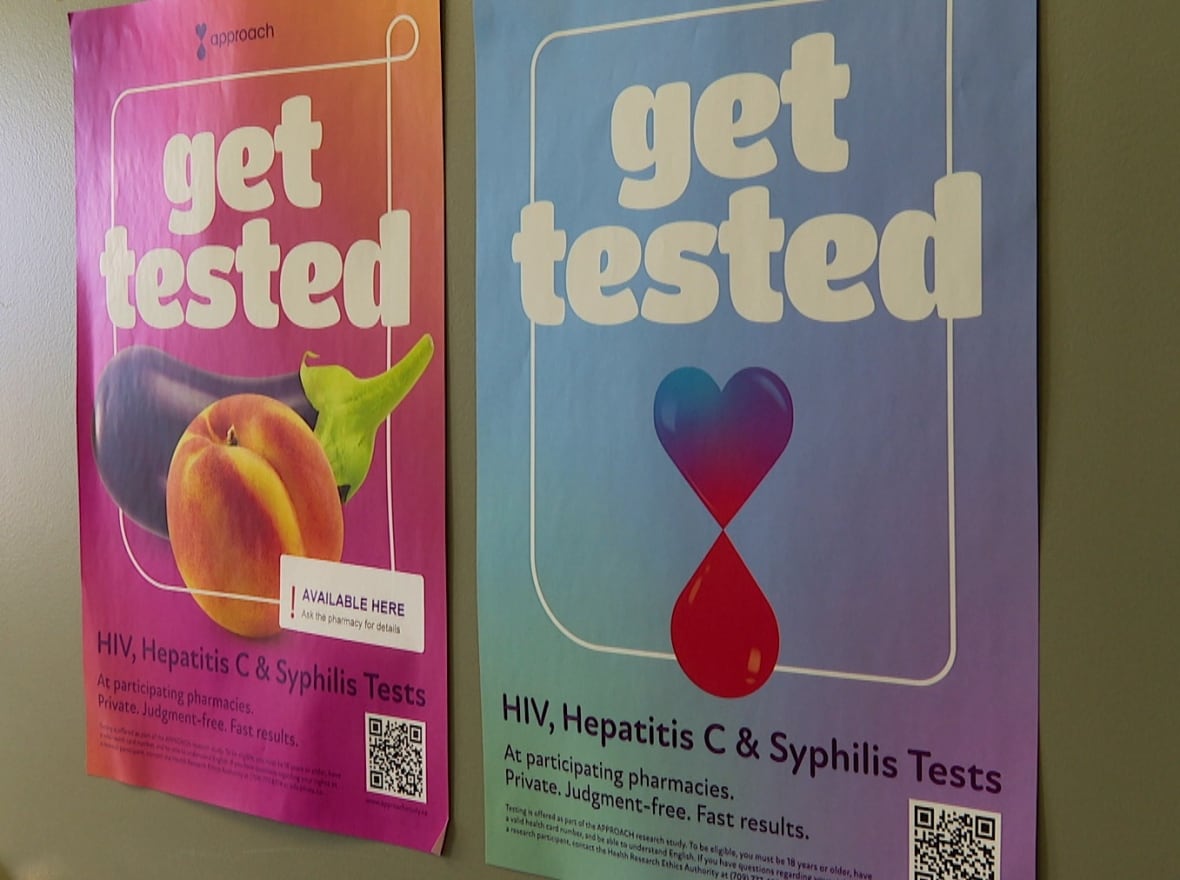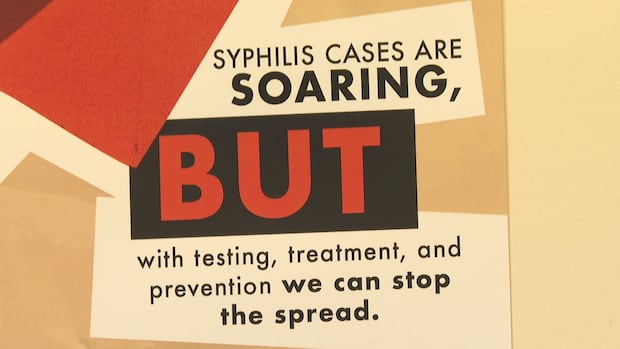Syphilis cases in N.L. up by over 150% since 2023 amid ongoing outbreak in Labrador-Grenfell
140 cases of the sexually transmitted and blood-borne infection recorded as of July 2025

Syphilis numbers continue to rise in Newfoundland and Labrador, having increased by about 155 per cent since 2023, according to data from the provincial Department of Health.
The first seven months of the year saw a 47-per-cent increase in cases, from 95 in 2024 to 140 as of July 2025.
According to the province's chief medical officer of health, the development doesn't come as a surprise.
"This is a significant increase," said Dr. Janice Fitzgerald. "But that's not out of keeping with what we've been seeing elsewhere in the country."
A rise in syphilis has been observed across Canada for the past several years, having increased by 77 per cent from 2018 to 2023, when 12,135 cases were recorded.
While still far below the national level, cases in the province started going up in 2024, after a nine-year period with an average of only 38 cases annually, with 55 reported at most.
Last September, Newfoundland and Labrador Health Services declared an outbreak of the infection in the Labrador-Grenfell zone, which is also where 80 per cent of this year's cases have been reported.
"When you have an outbreak, of course, we go in and we're diligently looking for cases, doing contact tracing, that sort of thing," said Fitzgerald.
"So, we do expect to find more cases just simply because we're looking for them."
So far, 15 cases of congenital syphilis, passed on to a baby during pregnancy or childbirth, have been recorded — a concern, according to Fitzgerald.
"That can have significant implications on the development of the fetus as well as long-term neurological problems and other behavioural issues," she said.
The rise of syphilis is also closely watched by those in the field of sexual health, like the provincial AIDS Committee.
"Things are climbing quite steeply but not quite as high as we're seeing in other parts of the country," said Julia Abundo, provincial coordinator of HIV and hepatitis C services.
"Trends typically move west to east when it comes to these kinds of things. So, we're worried about a potential continued increase."
While experts aren't sure what has caused rates to spike back up, Abundo said there are theories about decreased condom use among youth, and lower testing numbers due to the pandemic.

In response, the committee partnered with community and government bodies for its new campaign "Know More, Test More," targeted at raising awareness of the disease and increasing testing numbers.
"Syphilis kind of sounds older. It's been around for a long time and we were actually quite close to eradicating syphilis," said Abundo.
"There's a lot of feeling that 'this can't happen to me. This only happens to certain people.' The thing is, with STIs and STBBIs, those can happen to anybody who's sexually active."
Which role pharmacies can play in sexual health care, and in the prevention, testing and treatment of syphilis, has been the subject of research led by Debbie Kelly, a professor at Memorial University's School of Pharmacy and a pharmacist with the provincial HIV program.
"One of the really interesting findings was the number of first-time testers that we reached…. As many as 60 per cent of the people who were tested in our study had never been tested for syphilis before," she said.
"That sort of tells us that, if the study was not available, people were not accessing testing or didn't have access to testing or maybe didn't want to avail, for whatever reason, of other testing options."

She said as syphilis, like other sexually transmitted infections, is often asymptomatic, and people often don't know they're affected, regular testing should become a part of people's health-care checkups — just like pap tests or flu shots.
"We need to sort of normalize testing, and normalize just getting advice and information," said Kelly.
She believes that pharmacies can play an important role in making different testing options for still-stigmatized STIs more accessible, especially for residents in tight-knit rural communities.
"If they run into someone they know in a pharmacy, they could be there getting a flu shot or picking up a carton of milk," said Kelly.
"There's certainly evidence to support pharmacists' role not only in testing but also getting involved in prevention."
She said this integration of pharmacy-based sexual health services into the public health-care system, including the expansion of pharmacists' scope of practice to allow them to order lab tests or prescribe preventative medications, is part of ongoing conversations with the provincial government.
Meanwhile, Fitzgerald said increased public messaging has already shown a positive impact on syphilis numbers — which, according to numbers from the Department of Health, are steady, with an average of 23 cases reported monthly since the beginning of the year.
"There are a lot of things that people have been doing on the ground to try to reduce this," said Fitzgerald.
"We are still seeing cases but it's not expanding as fast as it was. So, the growth has slowed to some degree."
Download our free CBC News app to sign up for push alerts for CBC Newfoundland and Labrador. Sign up for our daily headlines newsletter here. Click here to visit our landing page.


